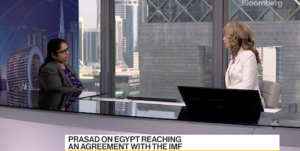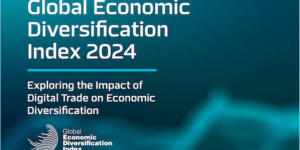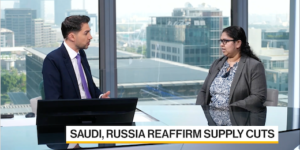The logistics sector has been one of the main forces globalization and the DIFC Economic Note 10 “Dubai World Central and the Evolution of Dubai Logistic Cluster” explores the opportunities and benefits for Dubai from its state-of-the-art infrastructure and logistics sector. At the heart of the logistics revolution lays the integration of transport modes and the standardization of procedures which boosted synergies and economies of scale, to an unprecedent extent.
Dubai has been riding high on the wave of this advancements fulfilling a vocation that had suited the Emirate since the late XIX century when its ruler at the time, Sheikh Rashid bin Maktoum, declared its port a free zone. Dubai has thrived in its role as a regional hub reaching a position of prominence in the global logistics network and today it is one of the critical nodes in the global supply chain. This evolution underlines also the growing importance of our region in the world and its gradual transformation from an energy commodity exporter into a diversified economy with a broader economic base and a flourishing, internationally connected, service sector.
The opening of the Al Maktoum International Airport in June 2010 has strengthened and expanded this role. With global trade acquiring an even more strategic importance in the world economy, Dubai will reinforce its position at a time when Asia is supplanting the West as the main engine of growth.
Research highlights that the relationships between transport costs, production locations, and trade patterns follow different stages. At the beginning of the process, when transport facilities slowly improve and costs drop, competitive advantages are the key driver of trade. Later, as the efficiency in transport grows, intra-industry trade starts to dominate, specialization increases and manufacturers exploit massive economies of scale.
To achieve wider supply chain optimization it becomes imperative for companies at different levels of the production chain to coordinate their operations. At the macroeconomic level we observe, as a result, that trade elasticities to global GDP have increased over the last decade all over the world. Likewise, we observe that intra-industry trade among high income economies, but also between low- and high-income countries dominates global trade relationships. As much as 44% of all shipments pertain not to finished goods, but to inputs.
Dubai’s logistics sector is poised to catch the tail wind of this new phase in global trade where the services and the organization of logistics will be the dominant success factors and firms will therefore increase scale and specialization while building sophisticated buyer-supplier networks. To exploit fully the benefits of seamless integration between the major transport infrastructures in Dubai however a few hurdles must be cleared, such as the upgrade of regulation of intermodal links within the Emirate.





